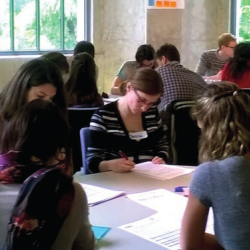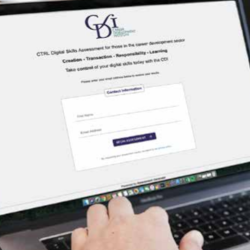What is a T Level?
T Levels are 2-year courses which are taken after GCSEs and are broadly equivalent in size to 3 A Levels. They have been developed in collaboration with employers and education providers so that the content meets the needs of industry and prepares students for entry into skilled employment, an apprenticeship or related technical study through further or higher education. T Levels are based on the same standards as apprenticeships, which are approved by the Institute for Apprenticeships and Technical Education
Entry requirements
Entry requirements for T Levels vary depending on the provider offering them. In line with other level 3 qualifications, most providers will require students to have at least 5 GCSEs at grade 4 or above as a minimum.
For students who are not quite ready to start a T Level after GCSEs, the T Level Foundation Year provides additional support to help them prepare. This one year programme offers students the opportunity to study technical content aligned to T Levels and develop their Maths, English and digital skills, alongside work experience and personal development. You can see here a list of providers delivering the T Level foundation year.
Structure
T Levels offer a combination of practical and classroom-based learning and are delivered by schools, colleges and other providers across England. A full list of providers can be found here. Students spend approximately 80% of their time in the classroom and 20% in the workplace.
T Levels require a student to undertake both a technical qualification and an industry placement with an employer. Learners study a broad course content alongside an occupational specialism, focusing on more specific knowledge and skills. Assessment is mainly exam-based, with some coursework depending on the subject. Students must also complete an employer-set project as part of their assessment, which involves practical application of skills learned during their placement.
Industry placements
A crucial element of a T Level is an industry placement of at least 315 hours - approximately 45 days. Employers can offer placements as a block, day-release or a mix of these, and can share part of the placement with another employer if necessary. Providers are responsible for finding placements, although the student can of course source their own.
Updated industry placement delivery approaches are in place from January 2025 and are designed to provide more flexibility in how placements ca be delivered. Up to 20% of the placement can now be virtual (and up to 50% in Digital T Levels). The exception to these flexibilities includes placements to Education and Early Years and Dental Nursing specialisms, which have specific requirements linked to licences to practice.
Students can now undertake placements across the broader occupational group that their T Levels sits within (route level), not just their specific T Level subject (pathway) or occupational specialism.
Grading and certification
Students who complete their T Level are awarded a nationally recognised certificate which shows their overall grade and a breakdown of what they have achieved, including:
- an overall grade for the T Level, shown as pass, merit, distinction or distinction*
- a separate grade for the core component, grade A*-E
- a separate grade for each occupational specialism, shown as pass, merit or distinction
The certificate also confirms that the students has completed the industry placement and met any additional mandatory requirements. The overall grade is worked out from the grades they achieved on the core component and the occupational specialism.
Students who do not pass all elements of their T Level receive a statement of achievement which shows the elements they have completed.
Progression
Progression options from a T Level include skilled employment, apprenticeships, further education study and higher education, including Higher Technical Qualifications (HTQs). T Level carry UCAS points - a Distinction* is equivalent to three A Levels at A*. More than 140 UK universities (including 17 of the 24 Russell Group institutions) accept T Levels for entry on to at least one course
The Institute for Apprenticeships and Technical Education (IfATE) has published progression profiles, which show how T Levels can lead to a range of opportunities in employment, apprenticeships, further and higher education.
IfATE has also published occupational maps showing the wide range of roles available to those progressing from T Levels.




